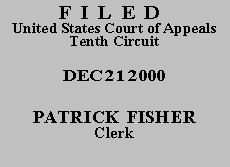

| UNITED STATES OF AMERICA,
Plaintiff-Appellee, v. NICHOLAS COLTON CASSAVETES, Defendant-Appellant. |
|
Defendant entered a conditional plea of guilty to a charge of possession of an unregistered firearm in violation of 26 U.S.C. §§ 5861(d) and 5871. The district court sentenced defendant to twenty-two months' imprisonment. Defendant appeals from the district court's denial of his motions to suppress evidence seized from his residence pursuant to a search warrant. We have jurisdiction under 28 U.S.C. § 1291.
This case was part of a two-year federal investigation into the Sons of Silence motorcycle club, of which defendant was a member. A number of warrants related to the investigation were issued by a federal magistrate judge on October 5, 1999, including the warrant to search defendant's residence challenged here. That warrant was executed beginning at 9:40 p.m. on October 7, 1999.
The warrant was supported by information provided by an undercover special agent of the Bureau of Alcohol, Tobacco and Firearms. This agent stated that he observed defendant inhaling methamphetamine at a Valentine's Day party in 1999 and was offered methamphetamine by defendant; saw a short-barreled shotgun in defendant's garage on February 14, 1999; heard defendant say that he owned one hundred firearms, including machine guns, that day; fired guns with defendant on the firing range on defendant's property that day; and heard defendant say on September 5, 1999, that he still had an AK-47. Defendant argues on appeal that: (1) the information supporting the warrant was so old that any probable cause was stale; (2) an AK-47 is not necessarily a machine gun and the information that defendant possessed machine guns was given in reckless disregard of the truth; (3) defendant was not established as a drug user who was prohibited from owning guns; and (4) there was no basis for a nighttime search.
"We review de novo the district court's probable cause determination." United States v. Nolan, 199 F.3d 1180, 1182 (10th Cir. 1999). Our review of the issuance of the search warrant is more deferential, however. Id. (citing Illinois v. Gates, 462 U.S. 213, 236-39 (1983)).
The task of the issuing magistrate is simply to make a practical, common-sense decision whether, given all the circumstances set forth in the affidavit . . . , there is a fair probability that contraband or evidence of a crime will be found in a particular place. And the duty of a reviewing court is simply to ensure that the magistrate had a substantial basis for . . . conclud[ing] that probable cause existed.
Gates, 462 U.S. at 238-39 (quotation omitted). In reviewing the district court's denial of a motion to suppress, we accept the court's factual findings unless they are clearly erroneous, viewing the evidence in the light most favorable to the government. United States v. Le, 173 F.3d 1258, 1264 (10th Cir. 1999). The ultimate question of reasonableness under the Fourth Amendment is a legal question that we review de novo. United States v. Hill, 199 F.3d 1143, 1147 (10th Cir. 1999), cert. denied, 121 S. Ct. 83 (2000).
We find no error. Whether information supporting a warrant is stale is determined by "the nature of the criminal activity, the length of the activity, and the nature of the property to be seized." United States v. Snow, 919 F.2d 1458, 1460 (10th Cir. 1990) (quotation omitted). The district court did not clearly err in finding that defendant was a gun enthusiast who probably had not, by October, gotten rid of all of the many guns he claimed to own in February. See United States v. Shomo, 786 F.2d 981, 984 (10th Cir. 1986).
Further, the district court did not clearly err in finding that when defendant claimed in September to have an AK-47, he meant a machine gun. Although defendant insists that an AK-47 can be a semi-automatic weapon, it is common sense to interpret defendant's September comment in light of his earlier claim to own machine guns. See Gates, 462 U.S. at 238. It is immaterial that the search failed to uncover any machine guns. And, because the magistrate judge had probable cause to believe that defendant possessed illegal weapons, it is unnecessary to discuss defendant's argument that he was not shown to be a drug user who was prohibited from owning any guns under 18 U.S.C. § 922(g)(3).
Finally, although the warrant authorized a nighttime search, the search actually began at 9:40 p.m., which is defined as daytime. Fed. R. Crim. P. 41(h). A search that lawfully begins during the daytime may continue into the night. United States v. Young, 877 F.2d 1099, 1104-05 (1st Cir. 1989). Therefore, it is immaterial whether a nighttime search was properly authorized.
The judgment of the United States District Court for the District of Colorado is AFFIRMED.
Entered for the Court
Circuit Judge
*. This order and judgment is not binding precedent, except under the doctrines of law of the case, res judicata, and collateral estoppel. The court generally disfavors the citation of orders and judgments; nevertheless, an order and judgment may be cited under the terms and conditions of 10th Cir. R. 36.3.